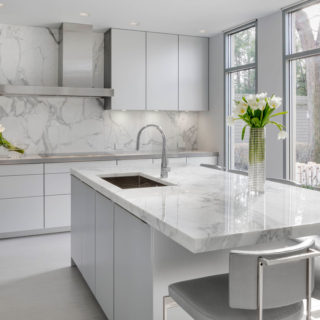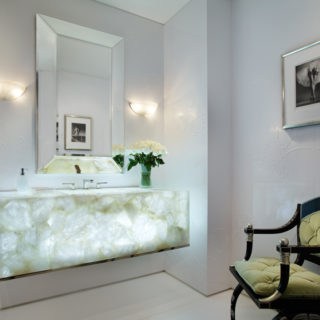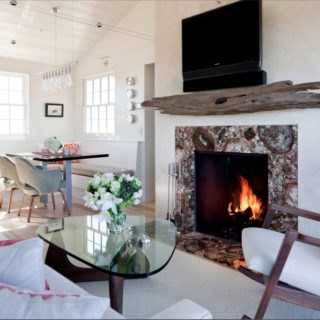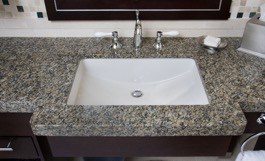
The widespread use of granite for Kitchen countertops is mainly due to its high-resistance to the everyday wear and tear typically seen in kitchens. If you already browsed our “Care and Maintenance” section, you may know that granite has a higher resistance to acids and to high alkaline detergents than other categories of stones. That said, this doesn’t mean that you don’t have to take care of it! In this specific case, prevention is the key to preserve its beauty over the time. Here’s some tips on how to clean your granite countertop.
- DAILY CLEANING
Granite countertops require a simple daily cleaning: use a soft cloth with warm water and a mild liquid dishwashing detergent and rinse the surface thoroughly. As you see, you don’t need specialty cleaners for granite, but if you prefer a spray cleaner, there are products on the market that are specific for natural stone, just make sure it says so on the label!
- IF A SPILL OCCURS
Even if granite has a low level of absorption, some liquids can still stain or etch the stone if not cleaned up quickly. If a spill occurs, immediately blot the spill with a paper towel. It is recommended to not wipe the area, as this can spread the spill. Flush the area with plain water and a mild liquid dishwashing detergent and rinse the area several times until the spill has been cleared and removed. Change the rinse water frequently and don’t use too much soap or it may leave a film and cause streaks.
- DON’Ts
Here are a few suggestions of things you shouldn’t do when using or cleaning your granite countertop:
- DON’T use products that contain lemon, vinegar or other acids. Frequent uses of these acidic substances will dull the granite and weaken the sealant;
- DON’T use scouring powders or creams: these products contain abrasives that may scratch the surface;
- DON’T place hot items directly on the stone surface.
- DON’T use cleaners that contain acid such as bathroom cleaners, grout cleaners or tub and tile cleaners.
- DON’T use products that contain ammonia.
- DON’T use abrasive cleaners such as dry cleansers or soft cleansers.
- DON’T mix bleach and ammonia; this combination creates a toxic and lethal gas.
- DON’T ever mix chemicals together unless directions specifically instruct you to do so.
- STAIN REMOVAL WITH BAKING SODA POULTICE
Stain removal can be tricky and is truly best to be left to the experts, however if it is a fresh stain and you are feeling brave enough to attempt a remedy yourself, you can use the following poultice method.
To remove stains from granite you can create a poultice of water and baking soda. Here are the steps to follow:
- Prepare the poultice by mixing the two substances to form a thick paste about the consistency of peanut butter. If using paper, soak in the chemical and let drain. Don’t let the liquid drip.
- Wet the stained area with distilled water.
- Apply the poultice to the stained area about ¼” to ½” thick and extend the poultice beyond the stained area by about one inch. Use a wood or plastic scraper to spread the poultice evenly.
- Cover the poultice with plastic and tape the edges to seal it.
- Allow the poultice to dry thoroughly, usually about 24 to 48 hours. The drying process is what pulls the stain out of the stone and into the poultice material. After about 24 hours, remove the plastic and allow the poultice to dry.
- Remove the poultice from the stain. Rinse with distilled water and buff dry with a soft cloth. Use the wood or plastic scraper if necessary.
Knowing how to clean your granite countertop is really important to maintain its beauty over time. Nevertheless, your granite countertop will need to be resealed periodically as normal wear and tear will wear the sealant off. It is recommendable to leave this job to stone professionals. Sealing of granite should be done every 6 to 12 months.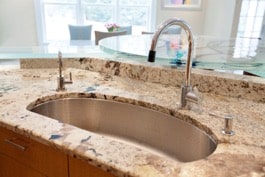
Our Care & Maintenance team is happy to assist you in protecting your investment and taking care of your natural stone surfaces.

